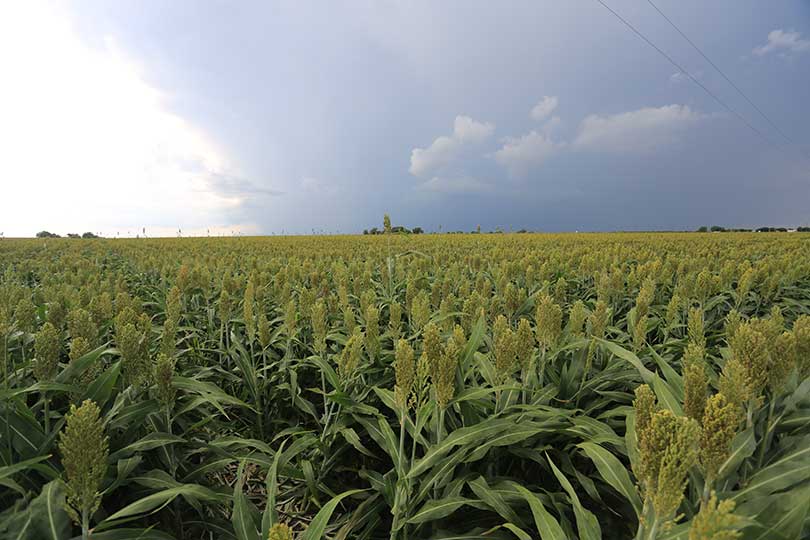Scouting and sugarcane aphid control efforts by Texas sorghum growers in the Rio Grande Valley are proving to be successful, according to Texas A&M AgriLife Extension specialists.
Southwest Farm Press reports the aphid populations have declined over the last week in the Rio Grande Valley.
Earlier this month, Extension integrated pest management specialist Danielle Sekula reported high numbers of sugarcane aphids at various locations across the Lower Rio Grande Valley.
The highest concentrations were detected in sorghum at flowering stage, especially in fields near the Rio Grande River. The detections were reported a month earlier than in 2016, according to Dr. Robert Bowling, Texas A&M AgriLife Extension assistant professor and integrated pest management Extension agent.
Unseasonably warm temperatures and the migration of winged aphids riding southerly winds out of Mexico could be factors that led to the early and elevated numbers found across the Valley region earlier this month.
“In grain sorghum at boot stage or heading, I was seeing about 5 to 15 winged aphids per leaf producing colonies of aphids, about five each, so they have been colonizing fast,” Sekula told Southwest Farm Press. “In grain sorghum in the flowering stage, I was finding anywhere from 500 to 3,000 sugarcane aphids per leaf in some areas.”
Sekula noted that farmers are managing sugarcane aphids well. She scouted grain sorghum along the river last week and reported they were clean.
The Valley farmers who began spraying after the high population reports have seen the most effective results, according to Sekula.
She recommends farmers stay vigilant and continue to scout their fields with the recent rain and temperatures expected to rise by week’s end.
According to Southwest Farm Press, some isolated reports of winged adults were reported in the Coastal Bend region last week. But numbers haven’t yet reached threshold.
Crop officials are also advising Coastal Bend farmers to remain diligent in their control efforts now that warmer weather has arrived.

